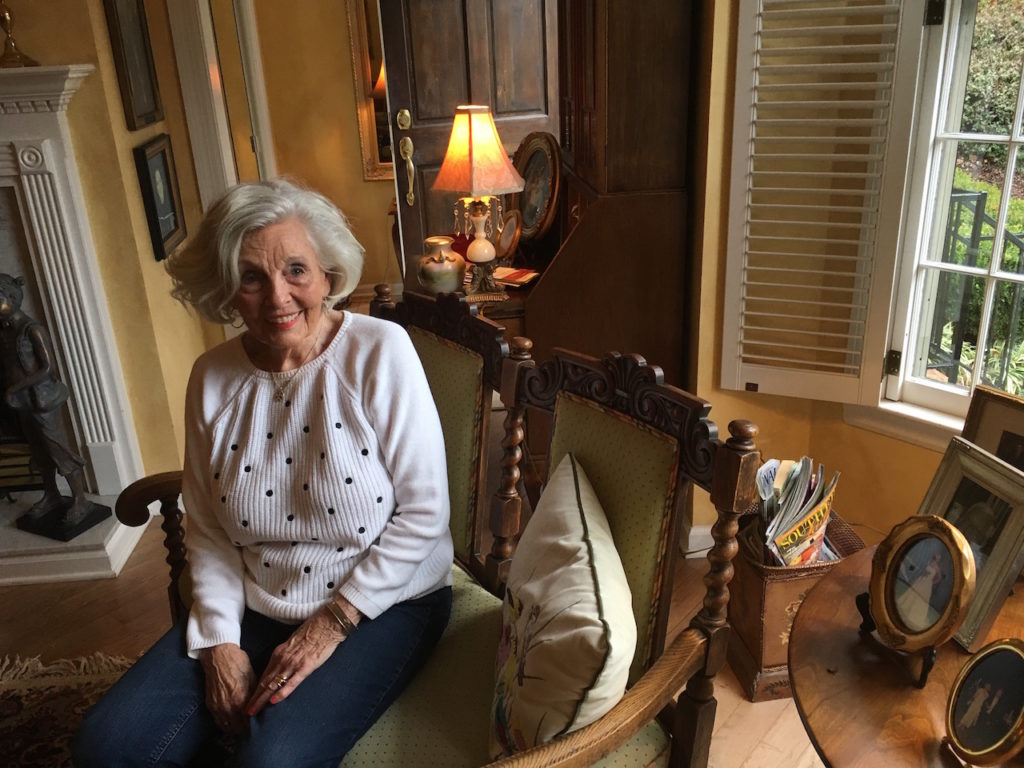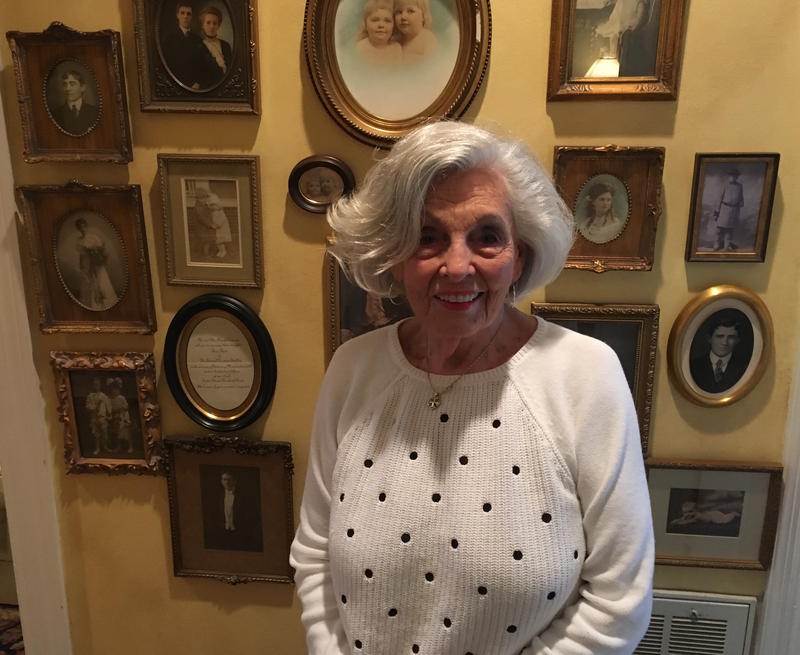
Nashville — like most locales — is losing its accents. Distinctive voices are diffusing in a modern world with mass media and transient lifestyles. But one 93-year-old is keeping the sound of old Nashville alive.
Lineage is important to Mary Williams. Portraits hang in every room of her Green Hills townhome.
“This is my ancestor wall here,” she says, standing in a small hallway.
Some photos go back to the 1800s, when her family move from New York to start a grocery business. In one, her grandfather poses in his Confederate Army uniform.
“He rode with Nathan Bedford Forest, which I used to be very proud to say, but now I’m a little bit reluctant,” Williams says, with a laugh.
Williams feels no shame talking about a Hume Fogg High School graduation photo. It’s of her mother — whom she credits with passing on the voice to her and her brother. One day, Williams went to court to watch her sibling, who was a prominent attorney litigate a murder trial. The key witnesses were mothers.
More:
Is The Southern Accent Fading In Raleigh?
“He said, ‘Is there a sweeter word in the vocabulary than the word
motha?’ And that word, ‘mother’ came out without the ‘r’ entirely,” she recalls. “Someway or another it just struck me, ‘Oh, you sound just like
motha.'”
That dropping of the “r” is more closely associated with Georgia plantations, says MTSU linguist Rick Morris. In Nashville, a “non-rhotic” accent —
as it’s technically known — often a sign of affluence, he says. There’s also the more working-class sound of country music. Dialect experts say the city is really a hodgepodge of southern sounds, without the distinct features from places like New Orleans or Savannah.
Williams’ voice has benefited and burdened her. In the early days of television, she’d act in live commercials, showing off jewelry or sausage as the announcer read copy.
“They didn’t want my voice in television commercials,” she says.

But she once tried out for a network commercial. Williams arrived early to the WSM studios to rehearse with the teleprompter. When the two men from New York arrived, she hit her cues.
“They were just lovely. It didn’t hurt my feelings at all,” she says. “But they both just gave me a hug and said, ‘Well, we love it. We’d love to take you back to New York. But you can’t sell anything north of the Mason-Dixon line.’ “
Williams says she never tried to lose her accent, which she developed prior to broadcast media’s standardized accent being an ever-present influence.
MTSU’s Morris says Nashville might retain its sound longer than some cities because according to some surveys,
like this one from Travel+Leisure, visitors find the local accent charming.
“As long as the people like the way people talk, I think that particular accent will retain charm,” Morris says. “Charm would be the first step to longevity.”
Morris says accents with broad appeal have a way of perpetuating themselves, even if it’s less than genuine.
More:
Listen To Accents Recorded In Tennessee
For example, when Mary Williams started a tour company around 1980, she’d tell stories and share legends over the intercom of charter buses full of country music fans. She says competing tour guides started copying her accent — their bosses had to tell them not to mimic her.
“The icing on the cake, it seemed, for the people who were here, was that you sounded like [you were from here],” Williams says. “But mine was natural.”
If there’s anyone you’d expect to sound like Williams, it would be her kids. But even the generational ties are no match for the accent-flattening forces all around us.
“I know it has to be a fact that mine comes from having lived with my mother, and they lived with me,” Williams says. “But they don’t have it.”


